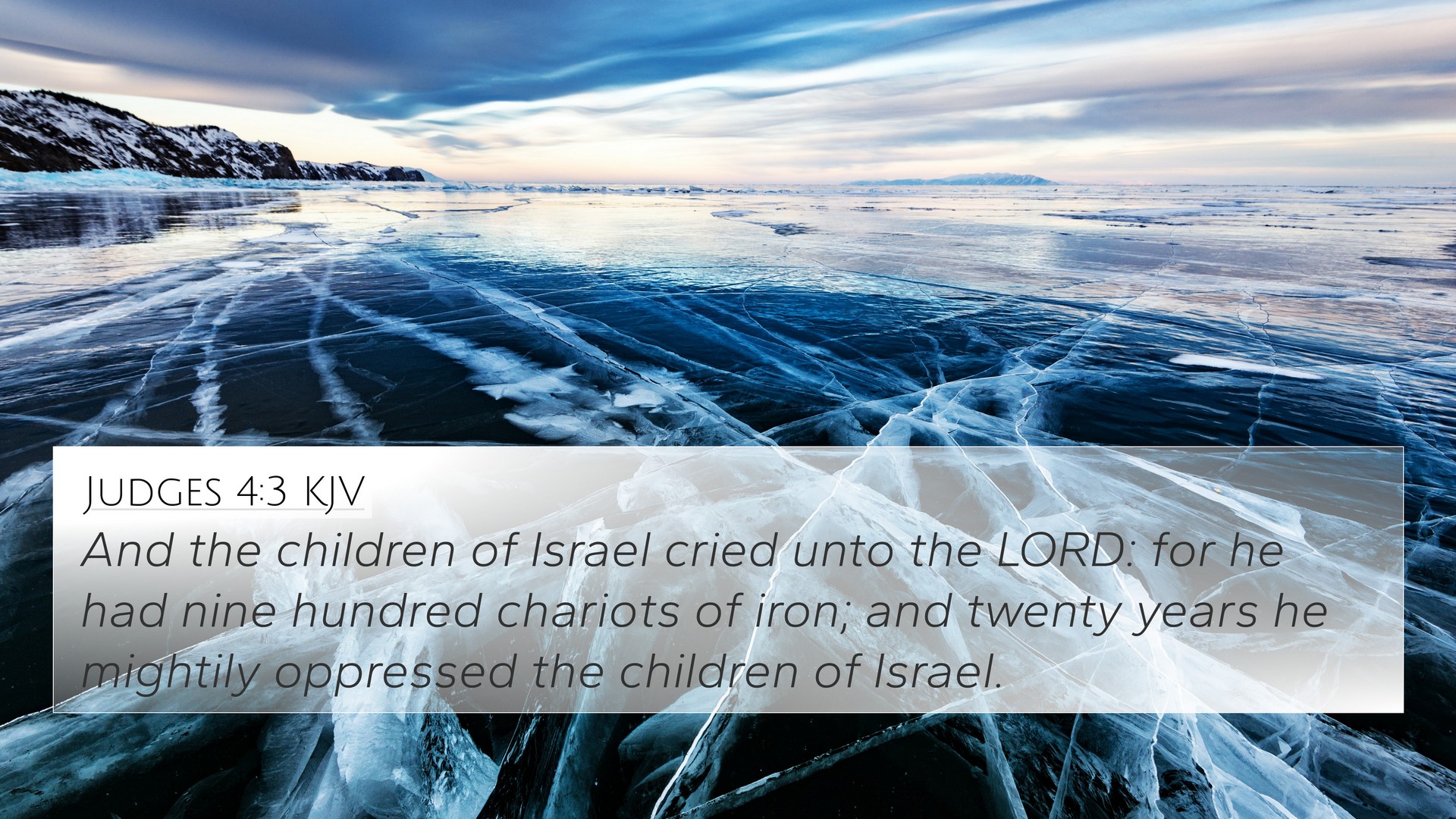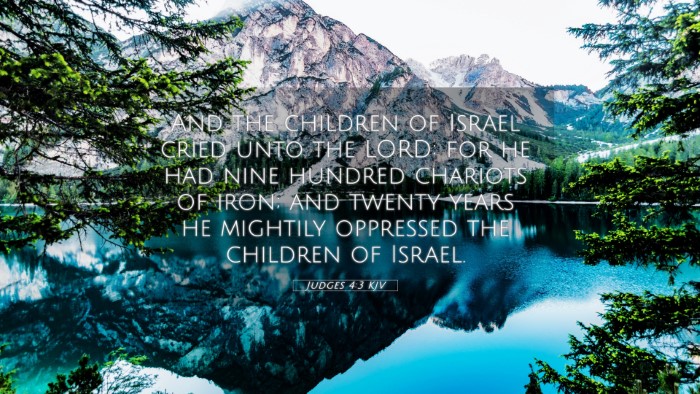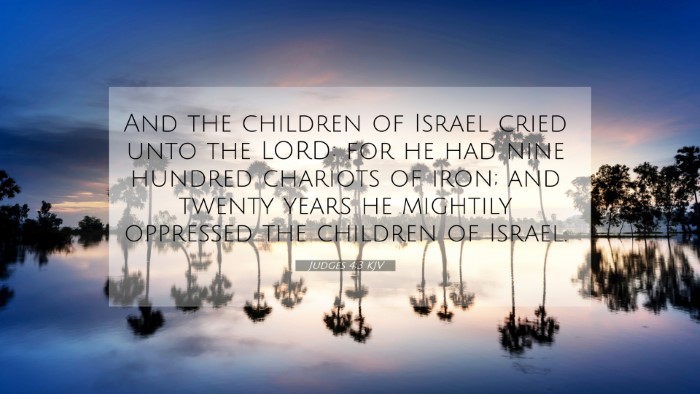Old Testament
Genesis Exodus Leviticus Numbers Deuteronomy Joshua Judges Ruth 1 Samuel 2 Samuel 1 Kings 2 Kings 1 Chronicles 2 Chronicles Ezra Nehemiah Esther Job Psalms Proverbs Ecclesiastes Song of Solomon Isaiah Jeremiah Lamentations Ezekiel Daniel Hosea Joel Amos Obadiah Jonah Micah Nahum Habakkuk Zephaniah Haggai Zechariah MalachiJudges 4:3 Similar Verses
Judges 4:3 Cross References
And the children of Israel cried unto the LORD: for he had nine hundred chariots of iron; and twenty years he mightily oppressed the children of Israel.
Uncover the Rich Themes and Topics of This Bible Verse
Listed below are the Bible themes associated with Judges 4:3. We invite you to explore each theme to gain deeper insights into the Scriptures.
Judges 4:3 Cross Reference Verses
This section features a detailed cross-reference designed to enrich your understanding of the Scriptures. Below, you will find carefully selected verses that echo the themes and teachings related to Judges 4:3 KJV. Click on any image to explore detailed analyses of related Bible verses and uncover deeper theological insights.
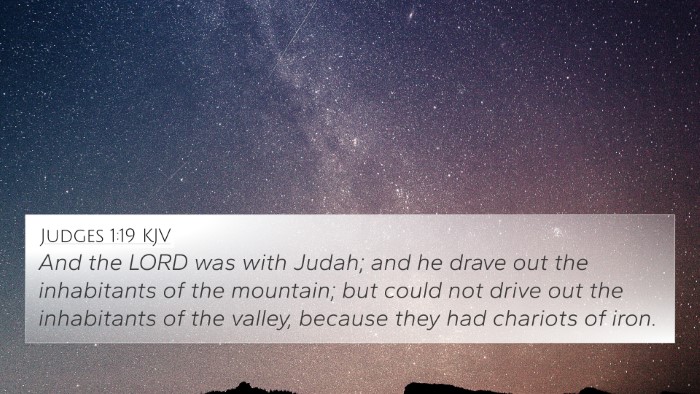
Judges 1:19 (KJV) »
And the LORD was with Judah; and he drave out the inhabitants of the mountain; but could not drive out the inhabitants of the valley, because they had chariots of iron.
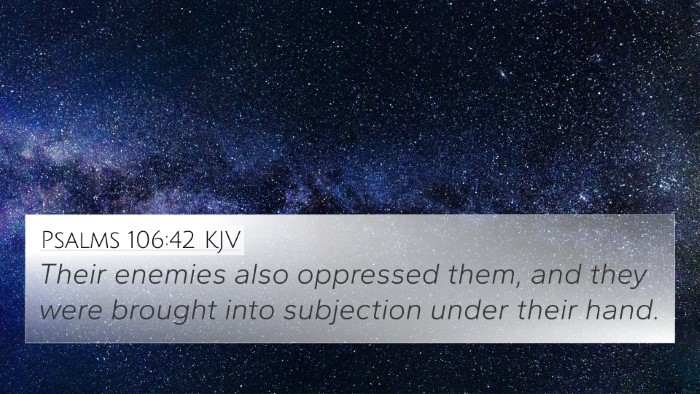
Psalms 106:42 (KJV) »
Their enemies also oppressed them, and they were brought into subjection under their hand.
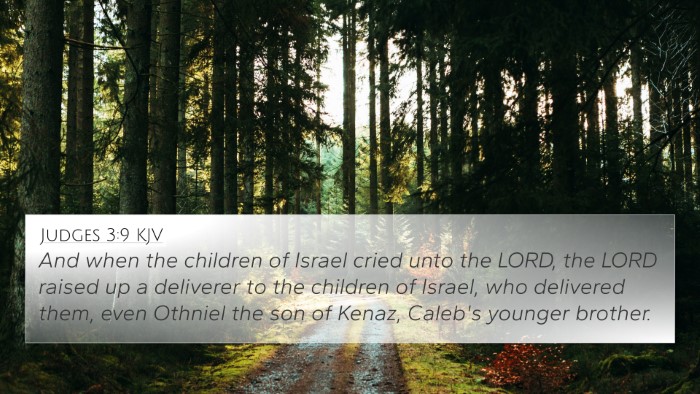
Judges 3:9 (KJV) »
And when the children of Israel cried unto the LORD, the LORD raised up a deliverer to the children of Israel, who delivered them, even Othniel the son of Kenaz, Caleb's younger brother.
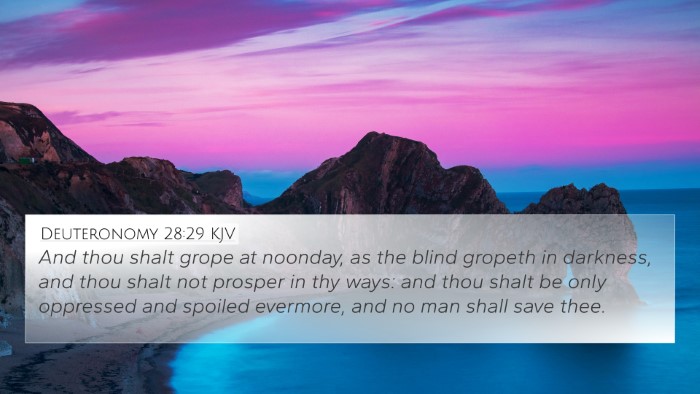
Deuteronomy 28:29 (KJV) »
And thou shalt grope at noonday, as the blind gropeth in darkness, and thou shalt not prosper in thy ways: and thou shalt be only oppressed and spoiled evermore, and no man shall save thee.
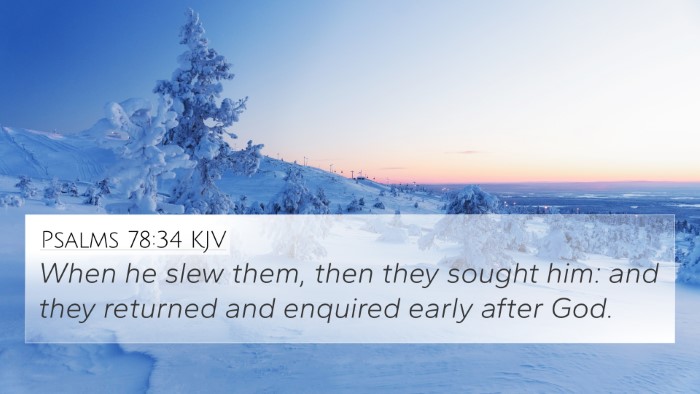
Psalms 78:34 (KJV) »
When he slew them, then they sought him: and they returned and enquired early after God.

Psalms 50:15 (KJV) »
And call upon me in the day of trouble: I will deliver thee, and thou shalt glorify me.
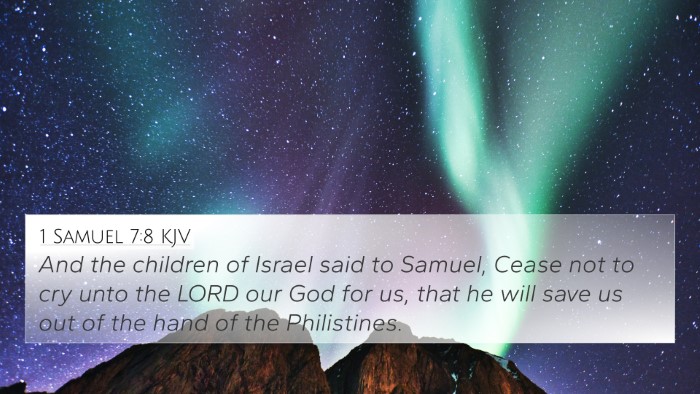
1 Samuel 7:8 (KJV) »
And the children of Israel said to Samuel, Cease not to cry unto the LORD our God for us, that he will save us out of the hand of the Philistines.
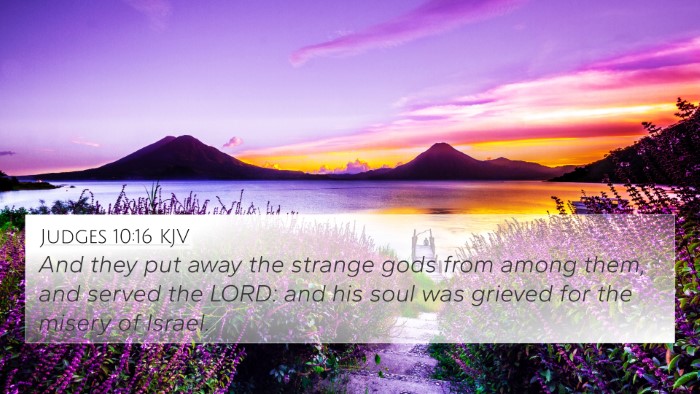
Judges 10:16 (KJV) »
And they put away the strange gods from among them, and served the LORD: and his soul was grieved for the misery of Israel.
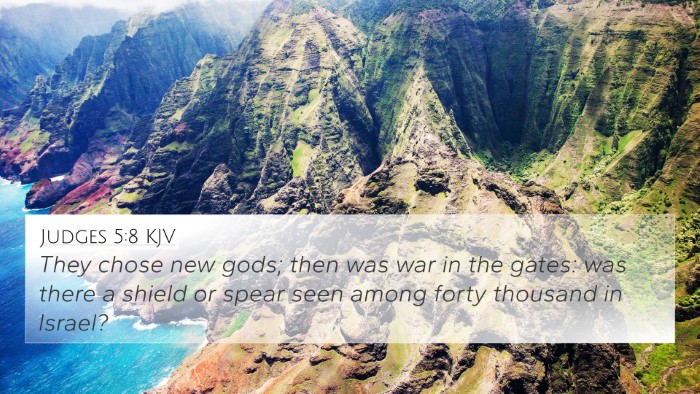
Judges 5:8 (KJV) »
They chose new gods; then was war in the gates: was there a shield or spear seen among forty thousand in Israel?
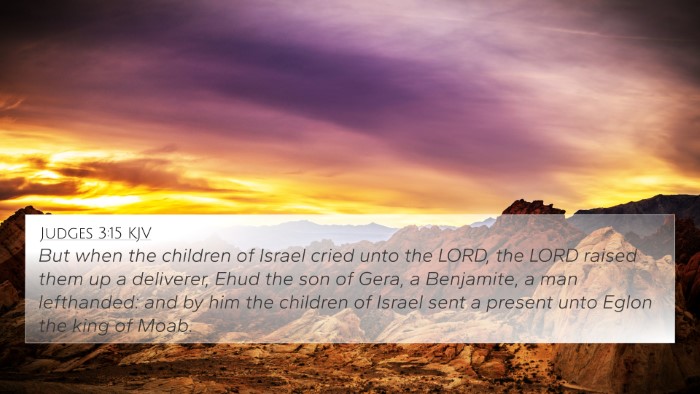
Judges 3:15 (KJV) »
But when the children of Israel cried unto the LORD, the LORD raised them up a deliverer, Ehud the son of Gera, a Benjamite, a man lefthanded: and by him the children of Israel sent a present unto Eglon the king of Moab.
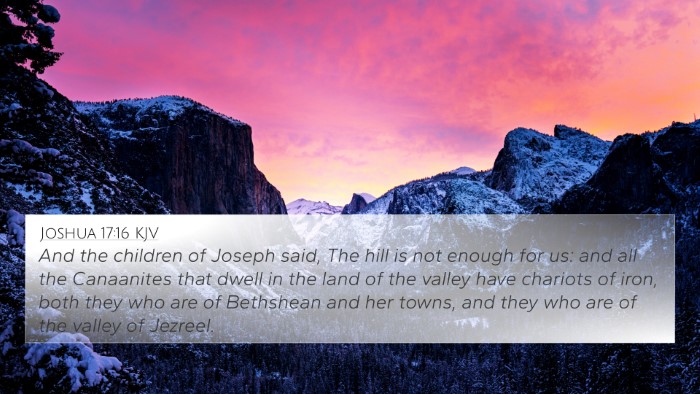
Joshua 17:16 (KJV) »
And the children of Joseph said, The hill is not enough for us: and all the Canaanites that dwell in the land of the valley have chariots of iron, both they who are of Bethshean and her towns, and they who are of the valley of Jezreel.
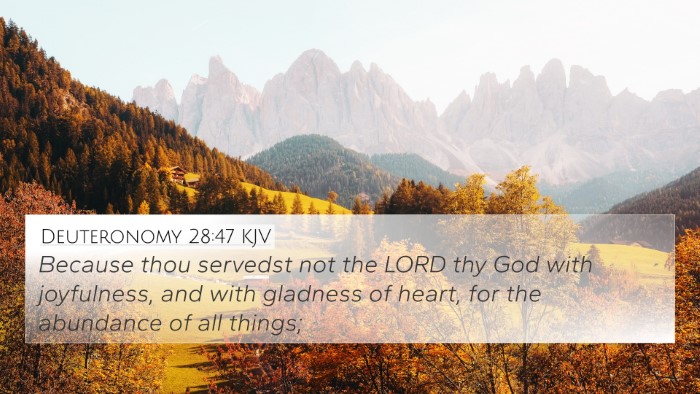
Deuteronomy 28:47 (KJV) »
Because thou servedst not the LORD thy God with joyfulness, and with gladness of heart, for the abundance of all things;
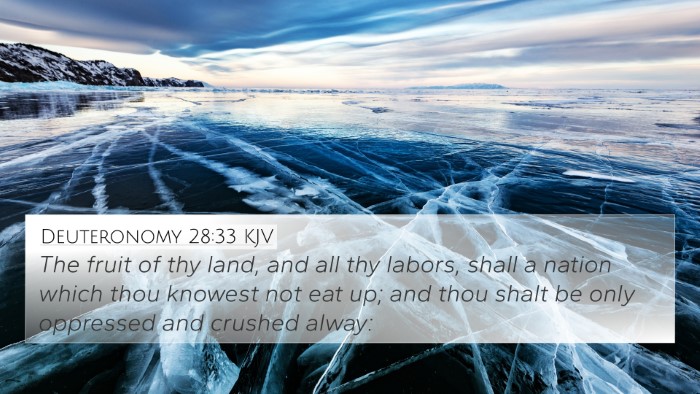
Deuteronomy 28:33 (KJV) »
The fruit of thy land, and all thy labors, shall a nation which thou knowest not eat up; and thou shalt be only oppressed and crushed alway:
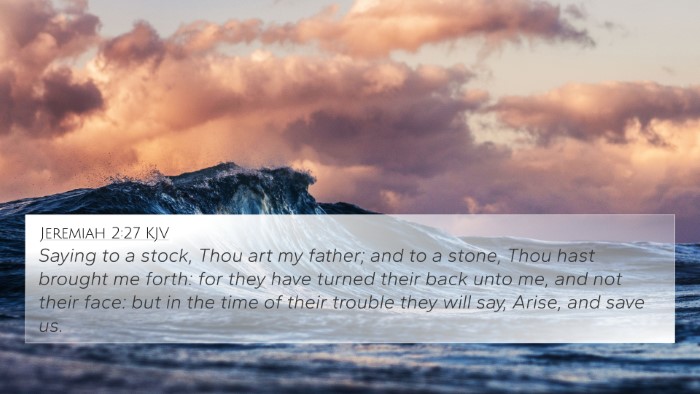
Jeremiah 2:27 (KJV) »
Saying to a stock, Thou art my father; and to a stone, Thou hast brought me forth: for they have turned their back unto me, and not their face: but in the time of their trouble they will say, Arise, and save us.
Judges 4:3 Verse Analysis and Similar Verses
Judges 4:3 - Summary and Interpretation
Judges 4:3 states: "And the children of Israel cried unto the LORD: for he had 900 chariots of iron; and twenty years he mightily oppressed the children of Israel." This verse highlights a significant period of oppression and the profound cries for divine intervention by the Israelites.
Understanding the Context
This narrative is set in a time when Israel was under the ruthless control of Jabin, king of Canaan. The presence of 900 chariots of iron signifies not just military strength but also the technological advantage that Jabin possessed over the Israelites. The oppression lasted for twenty years, illustrating the depth of Israel's suffering and their desperate need for salvation.
Commentary Insights
-
Matthew Henry:
Henry reflects on the Israelites' plight, emphasizing their cry as a manifestation of repentance and desperation. He notes that their acknowledgment of God’s power is the first step towards deliverance.
-
Albert Barnes:
Barnes comments on the significance of the chariots of iron, symbolizing the formidable enemy the Israelites faced. He draws attention to the twelve tribes of Israel's unity in their cry to the Lord, highlighting the need for collective dependence on God.
-
Adam Clarke:
Clarke stresses the theme of oppression leading to repentance, portraying God’s response to His people's cries. He points out that this narrative sets the stage for the eventual rise of Deborah and Barak, who represent God’s providence in rescuing Israel.
Thematic Connections
This verse serves as a pivotal moment in the cycle of sin, oppression, repentance, and deliverance that characterizes the book of Judges. The cry for help reflects a common biblical theme, where God's people find themselves in dire situations due to their own disobedience, leading them to seek His help.
Cross-References for Judges 4:3
- Exodus 2:23-25 - The Israelites cry out under Egypt's oppression, paralleling their cries in Canaan.
- 1 Samuel 7:8 - The Israelites recognize their need for divine intervention similarly to their cry in Judges.
- Psalms 107:13-16 - A psalm reflecting God's deliverance in response to the cries of the oppressed.
- Isaiah 19:20 - The theme of God sending a savior or deliverer in times of trouble.
- 2 Chronicles 7:14 - A call for humility and prayer in seeking God's deliverance.
- Hebrews 11:32-34 - A mention of faith in the actions taken by judges, including Deborah and Barak.
- Romans 8:31 - The assurance that God is with those who are oppressed.
Conclusion
Judges 4:3 encapsulates a moment of crises for Israel, characterized by their cry to God amidst oppression. The insights from public domain commentaries reveal the depth of meaning in this passage, emphasizing themes of repentance, divine assistance, and the historical context of Israel's struggles. For those studying biblical themes, connecting related scriptures provides a richer understanding of God's nature and His interactions with His people.
Additional Resources for Cross-Referencing
- Tools for Bible cross-referencing such as Bible concordance and cross-reference guides can help find connecting scriptures.
- Utilizing a Bible cross-reference system enhances study by identifying themes across passages.
- Engaging in comprehensive Bible cross-reference materials can enlighten one's understanding of thematic relationships.
In understanding Judges 4:3 and through its related scriptures, individuals can gain insights about the faithful response of God to the cries of His people throughout biblical history.
